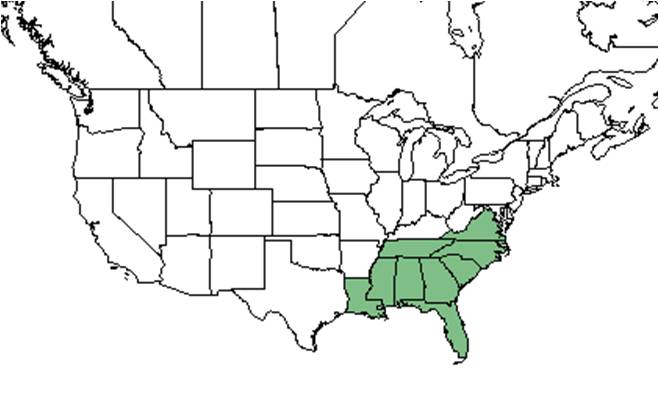Difference between revisions of "Sisyrinchium nashii"
KatieMccoy (talk | contribs) |
KatieMccoy (talk | contribs) |
||
| Line 30: | Line 30: | ||
===Phenology=== <!--Timing off flowering, fruiting, seed dispersal, and environmental triggers. Cite PanFlora website if appropriate: http://www.gilnelson.com/PanFlora/ --> | ===Phenology=== <!--Timing off flowering, fruiting, seed dispersal, and environmental triggers. Cite PanFlora website if appropriate: http://www.gilnelson.com/PanFlora/ --> | ||
| + | It flowers March through May and fruits April through May (FSU Herbarium). | ||
| + | |||
===Seed dispersal=== | ===Seed dispersal=== | ||
===Seed bank and germination=== | ===Seed bank and germination=== | ||
Revision as of 20:11, 19 November 2015
| Sisyrinchium nashii | |
|---|---|
Error creating thumbnail: Unable to save thumbnail to destination
| |
| Scientific classification | |
| Kingdom: | Plantae |
| Division: | Magnoliophyta - Flowering plants |
| Class: | Liliopsida – Monocotyledons |
| Order: | Liliales |
| Family: | Iridaceae |
| Genus: | Sisyrinchium |
| Species: | S. nashii |
| Binomial name | |
| Sisyrinchium nashii E.P. Bicknell | |

| |
| Natural range of Sisyrinchium nashii from USDA NRCS Plants Database. | |
Common name: Nash's blue-eyed grass
Contents
Taxonomic notes
Description
A description of Sisyrinchium nashii is provided in The Flora of North America.
Distribution
Ecology
Habitat
In the Coastal Plain in Florida and Georgia, S. nashii has occurred in limestone glades, longleaf pine/scrub oak communities, longleaf pine/wiregrass flats, slashpine woodlands bordering a tidal marsh, Cyrilla-Cliftonia thickets, and xeric oak/saw palmetto scrubs (FSU Herbarium). Soil types include loamy sand, sand, and sandy loam (FSU Herbarium). Associated species include Sarracenia minor, Calopogon, Schoenus nigricans, Sporobolus vaginiflorus, Dichanthelium commutatum, Polygala boykinii, and Echinacea purpurea (FSU Herbarium).
Phenology
It flowers March through May and fruits April through May (FSU Herbarium).
Seed dispersal
Seed bank and germination
Fire ecology
Pollination
The following Hymenoptera families and species were observed visiting flowers of Sisyrinchium nashii at Archbold Biological Station (Deyrup 2015):
Halictidae: Lasioglossum coreopsis
Use by animals
Diseases and parasites
Conservation and Management
Cultivation and restoration
Photo Gallery
References and notes
Deyrup, M.A. and N.D. 2015. Database of observations of Hymenoptera visitations to flowers of plants on Archbold Biological Station, Florida, USA.